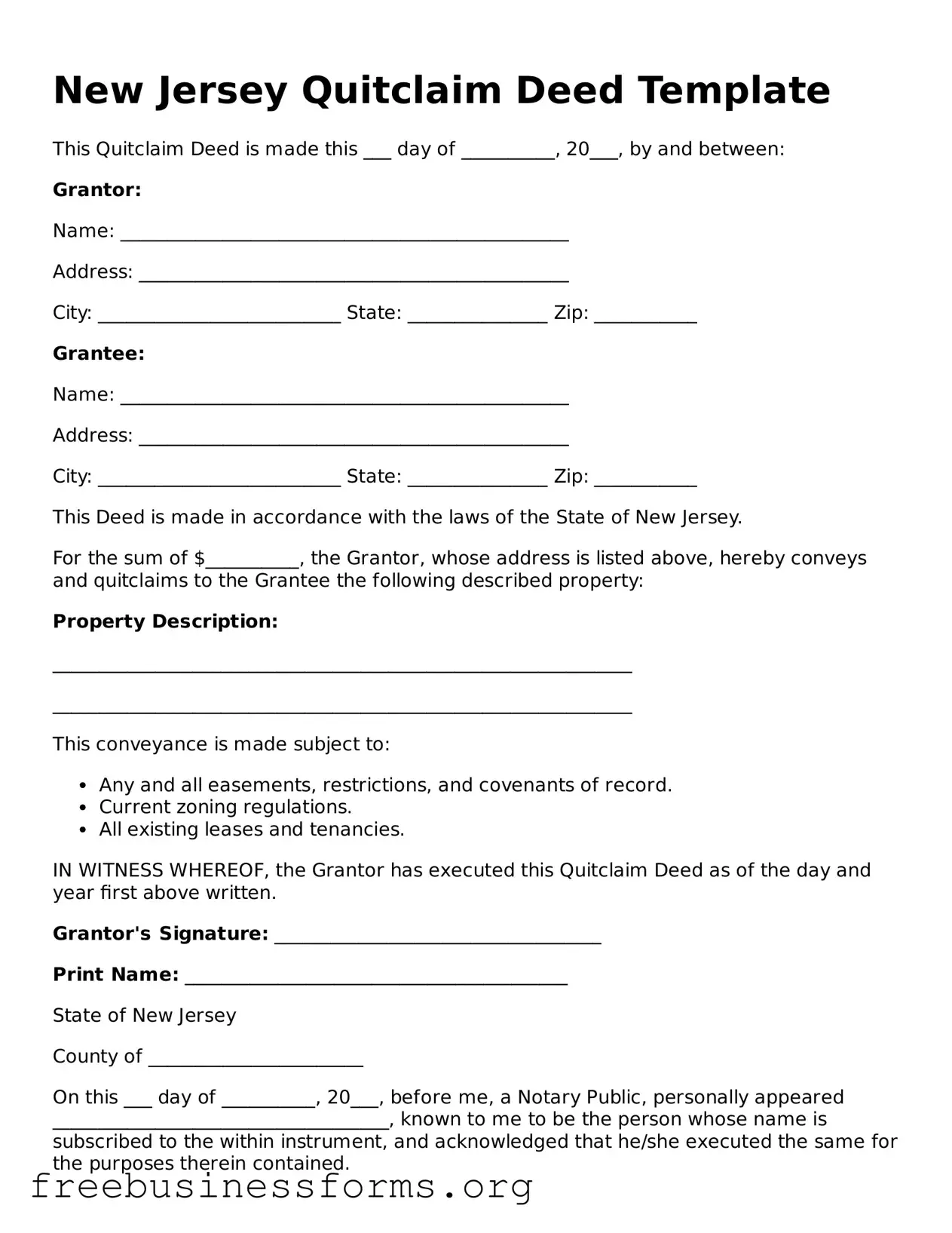Blank Quitclaim Deed Template for New Jersey
A Quitclaim Deed is a legal document used to transfer ownership of real estate from one party to another without any warranties or guarantees regarding the property title. In New Jersey, this form serves as a straightforward method for individuals to convey their interest in a property. Understanding the Quitclaim Deed process can help ensure a smooth transfer and clarify the rights of all parties involved.
Open Form Here

Blank Quitclaim Deed Template for New Jersey
Open Form Here

Open Form Here
or
↓ PDF File
Quickly complete this form online
Complete your Quitclaim Deed online quickly — edit, save, download.